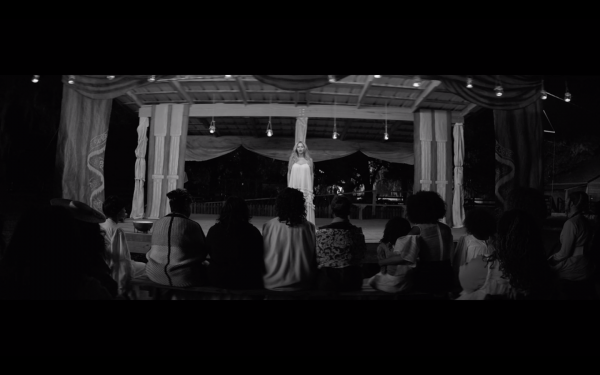I am too sensitive for this sh*t. My sensitivity caused me to be reluctant about transcribing the feelings Beyoncé’s visual album Lemonade imprinted on me and my body Saturday night. I also needed time to sit with and experience these feelings, rather than react.
As a longtime fan, a pop culture journalist, a feminist, a wife, and a black woman, I felt Beyoncé on levels I hadn’t yet felt her before. Lemonade flooded my body and being with images and sounds, but more important, she and her collaborative creation forced me to confront feelings I have kept at the margins for my very survival. To face them and recognize them was to betray the shiny hard veneer I was taught to carry in front of me in order to navigate systems intent on my destruction.
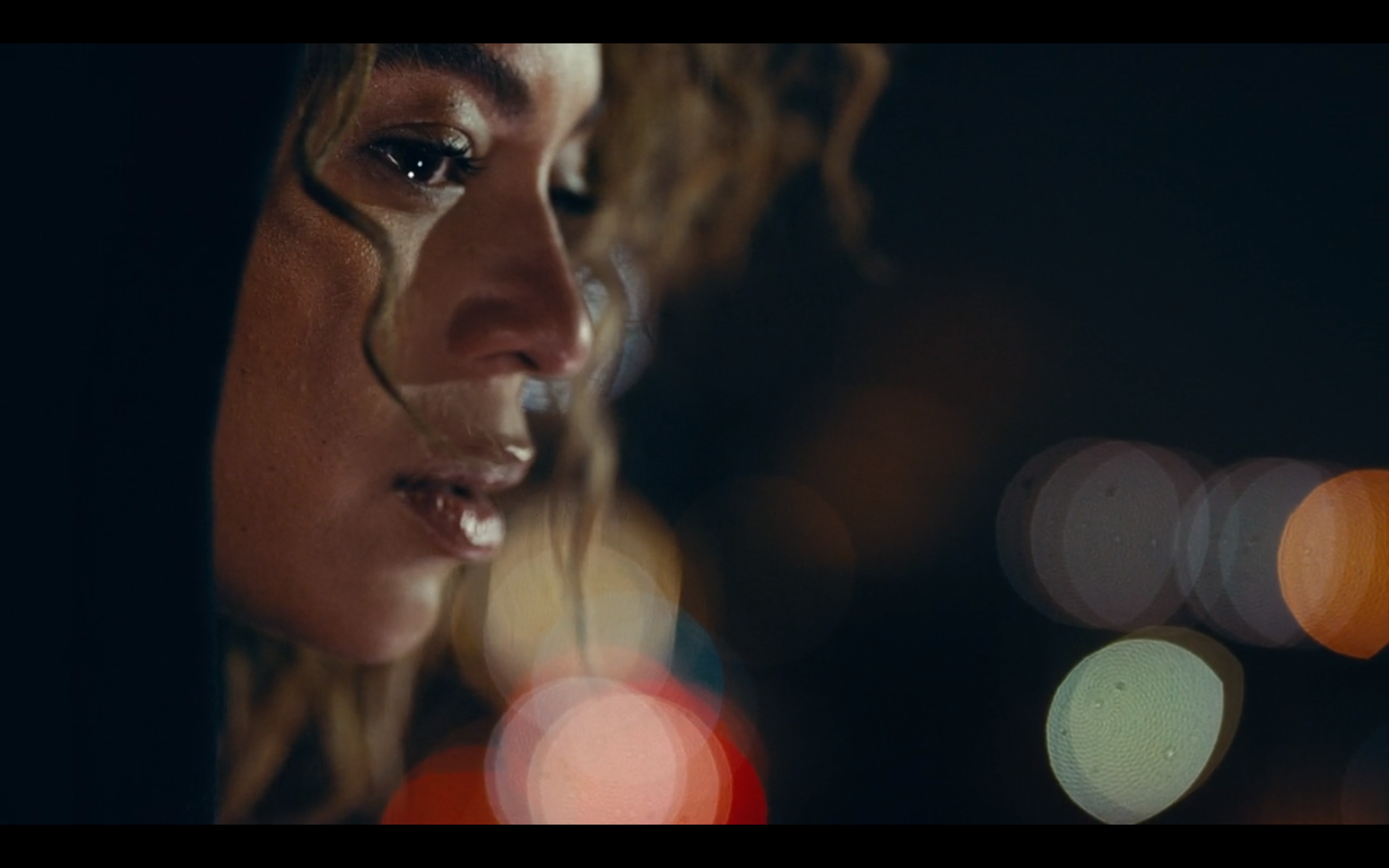
The chills I felt watching the HBO premiere showed up on my bare skin and remained on me — and in me — for days. Those remains showed up in the way I walked around my home, in the way I reached for my husband in bed, in the way I wept, in the way I dreamt.
I often dream about what “happily ever after” looks like for the black girl and woman. We have rarely been offered fairy tales that center us, or stories that center our quests for love and self and happiness and wholeness.
When I catch myself in these daydreams, I think about the tale that has consistently reflected a black woman’s “happily ever after” — for me as a black woman reading in search of self. It’s a tale that has impacted me so deeply that I quoted words from this text in my vows at my own wedding (“You look like the love thoughts of women…”). I think about the protagonist at the center of that black woman’s tale, the one that helped me see myself when I was a young girl: Janie Crawford in Zora Neale Hurston’s “Their Eyes Were Watching God.”
Janie’s ending is her beginning, and her beginning is in her telling. At the start of Hurston’s masterpiece, Janie steps her bare feet back in Eatonville, the all-black town she spent most of her womanhood as the mayor’s wife. She returns in soiled overalls, her plentiful hair held by a long, loose braid that swings across her back, hitting her round grapefruit-like behind. Despite the dishevelment, the 40-something woman who never had children looks like her own daughter. This Janie is not the Janie who looked at bees under a pear tree as a girl pondering love, romance and marriage. This Janie is not the Janie who became a woman tied up among the counters of her husband’s general store. This Janie is not the Janie who flees the trappings of respectability to build a life with a young, penniless dark-skinned boy many thought unworthy of her older, light-skinned rich self.
This Janie is a woman who has lived and loved, who has been struck and betrayed, and who has survived to tell it. It is in the telling where the fairy tale begins. Living and loving, hurting and surviving is not enough. Being able to give testimony to the burden, to “spin gold out of this hard life” and “conjure beauty from the things left behind,” is the fairy tale for the black woman. We improvise a way with our own lives. We refuse the sentencing of silence by giving testimony. This testimony provides blueprints that free us and the sisters and daughters who come after us.
Lemonade is the recipe we pass down to our black girls bearing witness to testimony. It is a cold, stinging truth; sweet and tart.
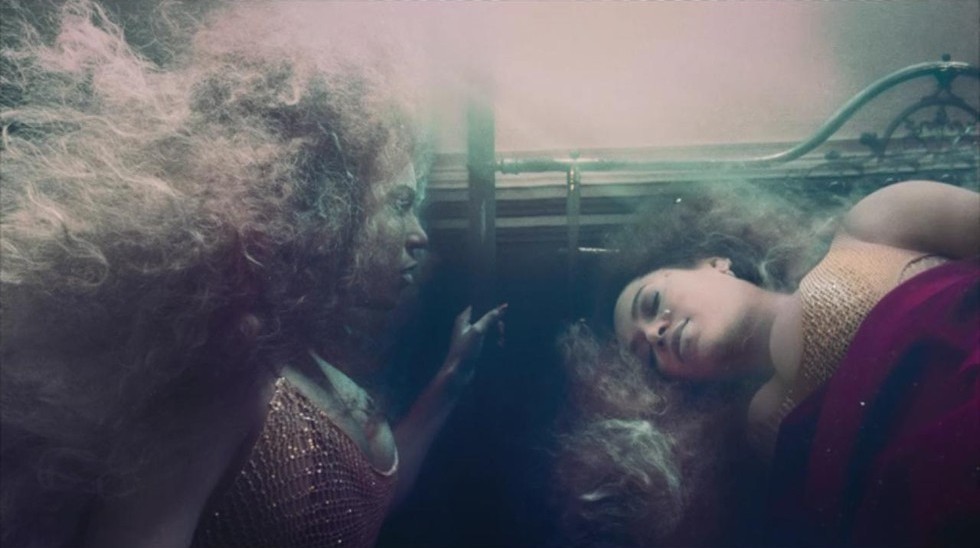
I see Janie throughout Beyoncé’s Lemonade. I see her on the ledge crying and leaping. I see her gloriously seeking and knowing on the porch. I see her in the water fighting for her life after the hurricane hit her and her beloved in the muck. I see the ghosts of black women scorned.
In Lemonade, one black woman processes her pain and betrayal in the way she knows best — visually and sonically. Testimony is the connective tissue that allows us to be seen and heard in a world that is intent on choking us with silence. Speaking our truth of how we know the world and have processed the burdens of our existence allows black women to go forth with reality openly — with our bats ready to swing.
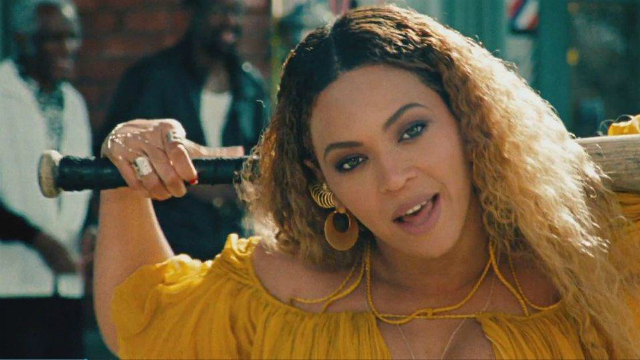
It is the knowledge of the black woman’s burden that Janie’s Nanny passes to her granddaughter early on in “Their Eyes Were Watching God.” Nanny “slapped [Janie’s] face violently” as “their eyes met in struggle.” She tells her young granddaughter the often unspoken secret that only black women who have lived know:
“Honey, de white man is de ruler of everything as fur as Ah been able tuh find out. Maybe it’s some place way off in de ocean where de black man is in power, but we don’t know nothin’ but what we see. So de white man throw down de load and tell de nigger man tuh pick it up. He pick it up because he have to, but he don’t tote it. He hand it to his womenfolks. De nigger woman is de mule uh de world so fur as Ah can see.“
There is power in becoming conscious of the injustices one faces in the world, yet there is death in the knowing. It is the killing of another carefree black girl. Watching Serena Williams and Zendaya, Amandla Stenberg and Quvenzhané Wallis, I cannot help but think of how all these black women learned early on, brutally as public black girls, that they could easily be ridiculed and prematurely stripped of such carefreeness and protectiveness often afforded to white children. (Zendaya and her dreadlocks; Amandla and her portrayal of Rue; Quvenzhané and the appalling Onion tweet; Serena at the Indian Wells tournament).
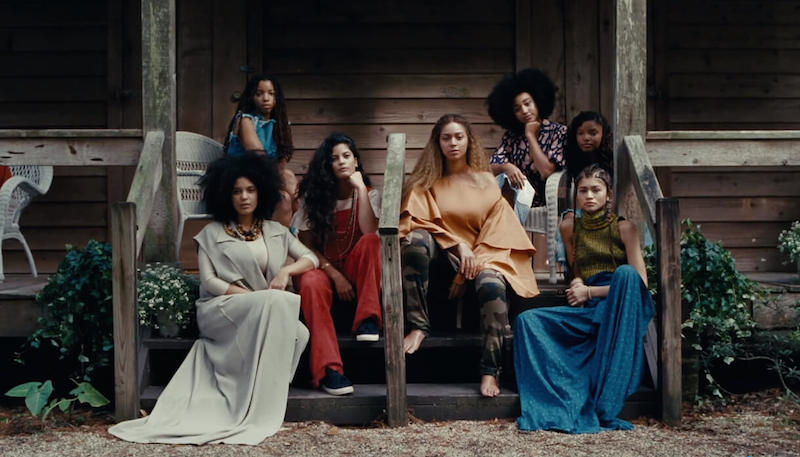
It is no coincidence that Beyoncé gathered some of the world’s most targeted girls, who have “spun gold” — their own black girl magic in the face of public ridicule, brutality and humiliation — together to share space in this visual album.
They are aware. We are aware. This collective knowing of unflinching truth allows us to carry on with eyes flung wide open to both beauty and brutality.
Beyoncé uses lines from a 1962 speech Malcolm X that echo the truths Nanny delivered to Janie: “The most disrespected person in America is the black woman. The most unprotected person in America is the black woman. The most neglected person in America is the black woman.”
The truth of black women’s burden does not exist in a vacuum in Lemonade. Instead, Beyoncé presents this burden and pain in various forms, where they interlock with community, family, love, beauty, and society. There is the black woman who is betrayed, whose agony pushes her off a ledge. There is the black girl wishing she looked like her mother. There is the black woman measuring herself against “Becky with the good hair.” There is the black girl who is warned by her magician father to shoot the man that comes after her heart if he is anything like him. There is also the black woman who mourns the loss of black boys and men they have birthed and/or loved. Beyoncé centers the vulnerability of black women without ignoring the brutality that faces black boys, teens and men at the hands of white male-dominated systems.
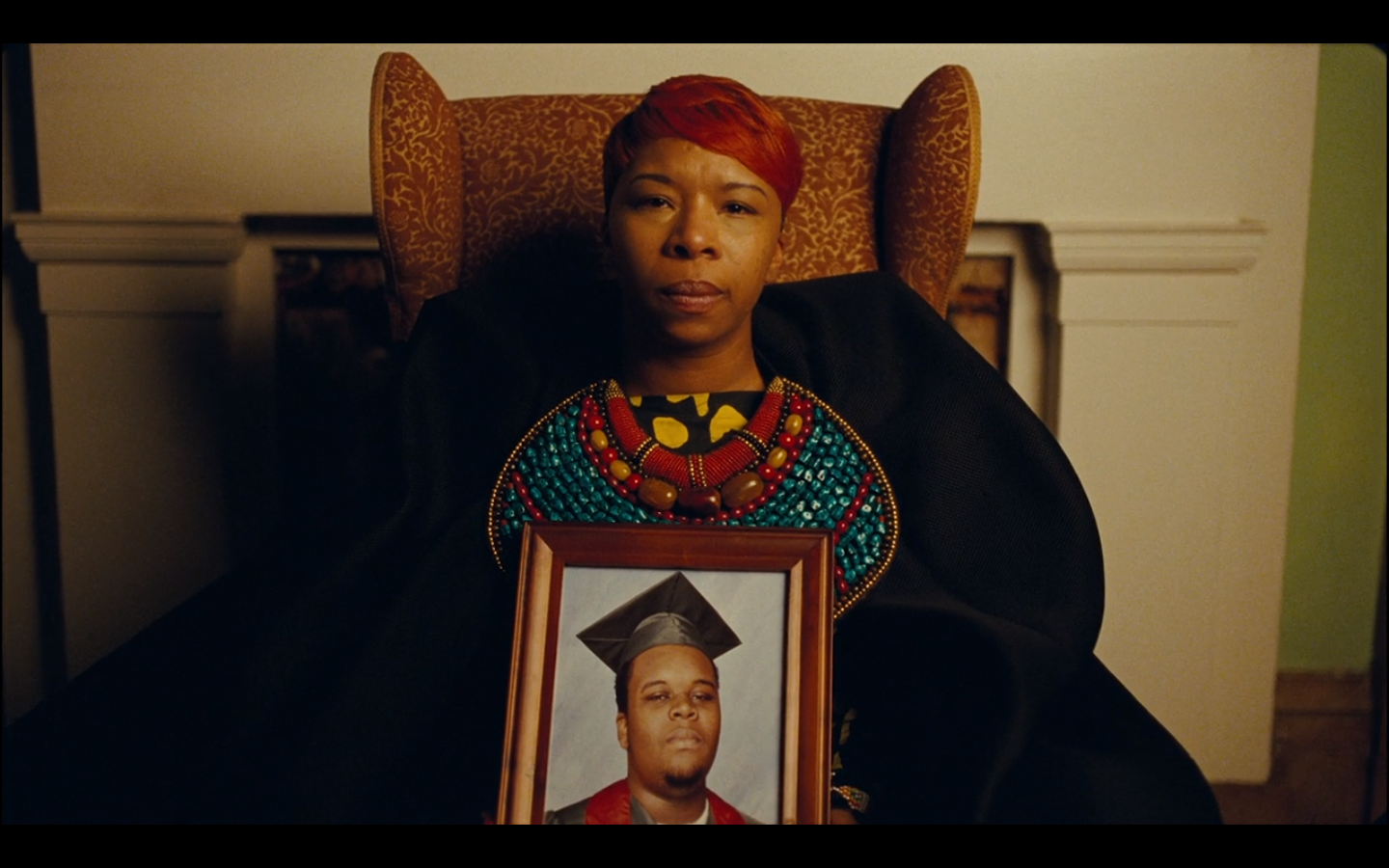
Like Nanny in “Their Eyes,” the matriarchs of Beyoncé’s family also wield truths in Lemonade, including the visual album’s title which is taken from Hattie White, the 90-year-old grandmother of her husband Jay-Z (who is silent on his wife’s album yet whose presence lingers leaving us pondering on infidelity and betrayal). At White’s birthday party, she gives a speech in which she states, “I was given lemons and I made lemonade” — an idiom which promotes optimism in spite of adversity. Beyoncé also shares a truth she cites as her grandmother’s, written by Somali-British poet Warsan Shire:
“My grandma said nothing real can be threatened. True love brought salvation back into me. With every tear came redemption. My torturer became my remedy..So we’re gonna heal. We’re gonna start again…You’re the magician. Pull me back together again the way you cut me in half. Make the woman in doubt disappear…The audience applauds but we can’t hear them.”
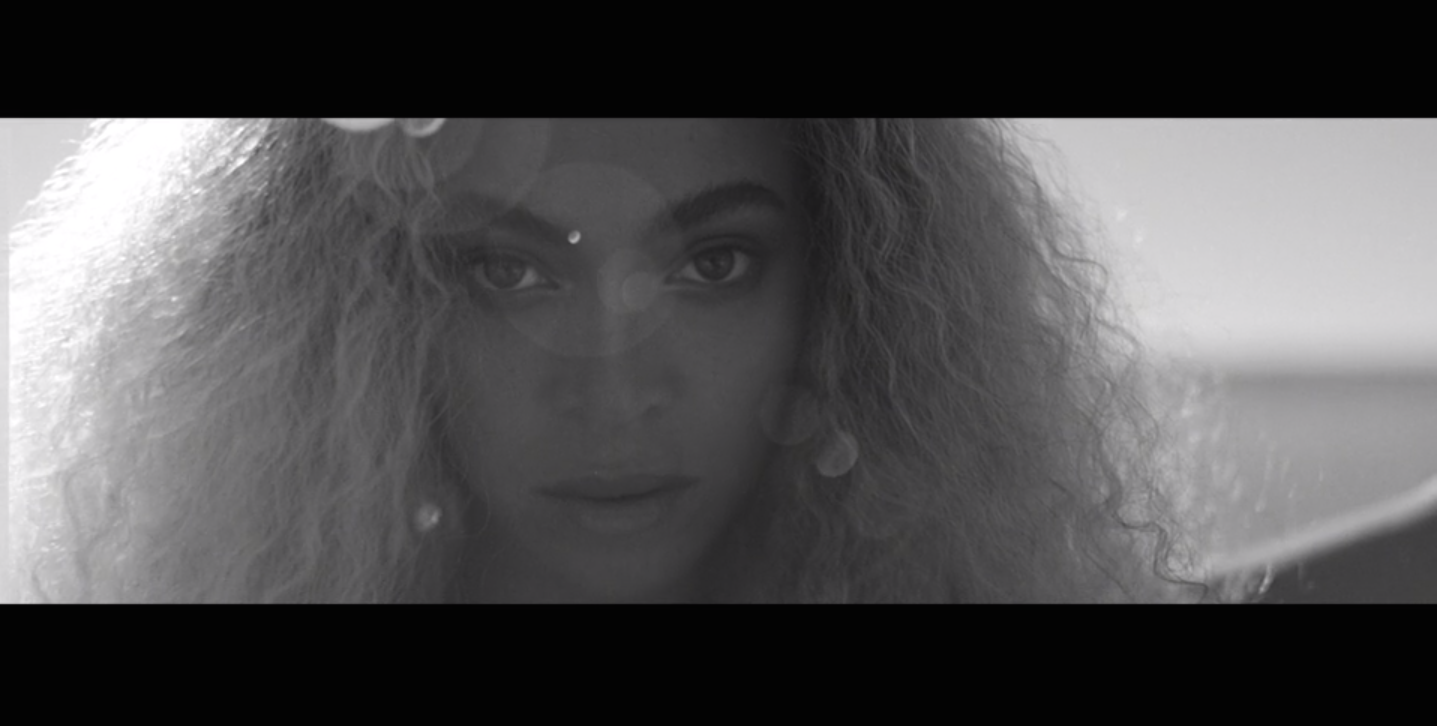
Like Janie in “Their Eyes Were Watching God,” Beyoncé in Lemonade is not concerned with whether we approve or whether we will run and tell our nosey neighbors about what we witnessed. The intimate act of telling, of revealing one’s self, one’s pain, one’s burden, and one’s lessons — the “spun gold” from the journey — is enough. The telling is the act. With Lemonade, Beyoncé has given us a blueprint to better live, struggle, and dream.
